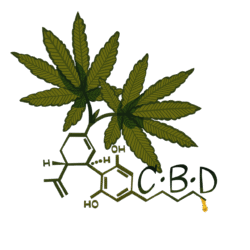CBD vs THC: The Complete Comparison Guide
CBD vs THC: Total Contrast Overview – Impacts, Conveniences & Legal Differences
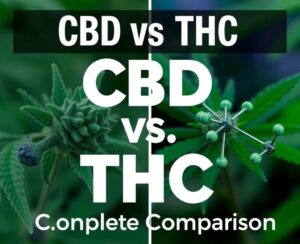
Two substances have dominated conversations concerning marijuana and hemp: CBD and THC. While both come from the exact same plant household, they couldn’t be a lot more various in their impacts, legal status, and restorative applications. Recognizing these distinctions is crucial for any person taking into consideration cannabinoid-based wellness items.
This detailed comparison overview, evaluated by healthcare specialists and legal experts, will clarify the key distinctions between CBD and THC. We’ll discover their chemical structures, results on the body, therapeutic advantages, lawful considerations, and help you understand which could be more suitable for your health goals.
Chemical Structure and Beginnings
Both CBD (cannabidiol) and THC (tetrahydrocannabinol) are cannabinoids – chemical compounds located in marijuana plants. They share the exact same molecular formula (C21H30O2) however have various atomic plans, which clarifies their vastly various impacts.
Key architectural differences:
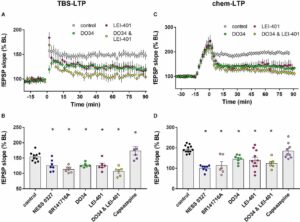
THC: Has a cyclic ring framework that enables it to bind straight to CB1 receptors
CBD: Has a hydroxyl group that avoids direct CB1 receptor binding
Plant resources:
THC: Largely located in marijuana plants (can contain 5-30% THC).
CBD: Plentiful in hemp plants (should include less than 0.3% THC to be federally lawful).
Both compounds begin as CBGA (cannabigerolic acid) in the plant and are transformed by enzymatic procedures. The plant’s genetics identify whether it generates more THC or CBD.
Psychoactive Results.
One of the most significant differences between CBD and THC hinges on their psychedelic effects.
THC Effects:.

Produces euphoria or “high”.
Can create transformed perception.
May harm temporary memory.
Can enhance anxiety in some users.
Influences coordination and response time.
Duration: 2-8 hours relying on intake method.
CBD Impacts:.
Non-psychoactive (won’t obtain you high).
May promote relaxation without problems.
Generally does not impact cognitive feature.
May in fact combat THC’s psychedelic results.
Doesn’t impair electric motor skills or memory.
Refined effects that numerous individuals call “tranquil alertness”.
Why the distinction?
THC directly turns on CB1 receptors in the mind, particularly in locations responsible for memory, thinking, focus, and control. CBD works indirectly, regulating receptor task as opposed to directly activating them.
Therapeutic Benefits Contrast.
CBD Healing Applications:.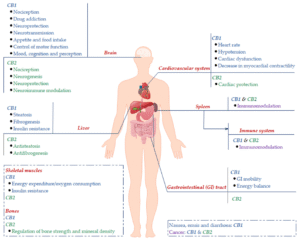
Current scientific research study recommends that such items can potentially profit numerous physical and mental health and wellness problems or signs and symptoms, consisting of stress, anxiety, sleep disorders, depression, appetite loss, nausea or vomiting, inflammation, chronic pain, glaucoma, joint inflammation, epilepsy, and a lot more.
Evidence-based CBD benefits:.
Epilepsy: FDA-approved Epidiolex for sure seizure problems.
Stress and anxiety: Several studies revealing anxiolytic results.
Inflammation: Anti-inflammatory properties in preclinical research.
Rest: May boost rest high quality without grogginess.
Pain: Possible analgesic effects, especially neuropathic discomfort.
THC Healing Applications:.
Clinical marijuana research study recommends THC may assist with:.
Persistent discomfort: Specifically efficient for neuropathic pain.
Nausea and throwing up: Specifically chemotherapy-induced.
Cravings excitement: Beneficial for cancer and HIV individuals.
Muscular tissue spasticity: Numerous sclerosis and spine injuries.
Glaucoma: Temporary reduction in intraocular stress.
Combination therapy (Entourage Impact):.
Some research study recommends that CBD and THC function better together than alone, a sensation called the “entourage effect.” CBD might:.
Minimize THC’s psychoactive intensity.
Reduce THC-induced stress and anxiety.
Expand therapeutic duration.
Give complementary benefits.
Legal Status and Drug Screening (.
CBD Legal Standing:.
Federal: Hemp-derived CBD with <0.3% THC is government lawful.
State variants: Some states have additional restrictions.
International: Legal status differs by nation.
Quality problems: Unregulated market with varying item quality.
THC Legal Condition:.
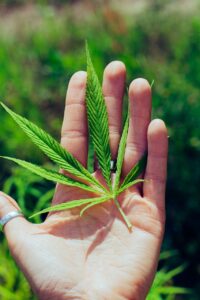
Federal: Still classified as Arrange I regulated substance.
State degree: Legal for clinical usage in 37+ states, entertainment in 18+ states.
Employment: Can still cause task discontinuation also in lawful states.
Traveling: Illegal to carry across state lines.
Medicine Screening Ramifications:.
CBD: Top quality, pure CBD shouldn’t.
